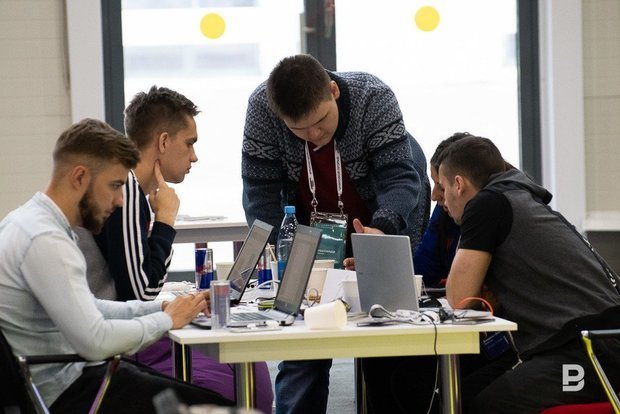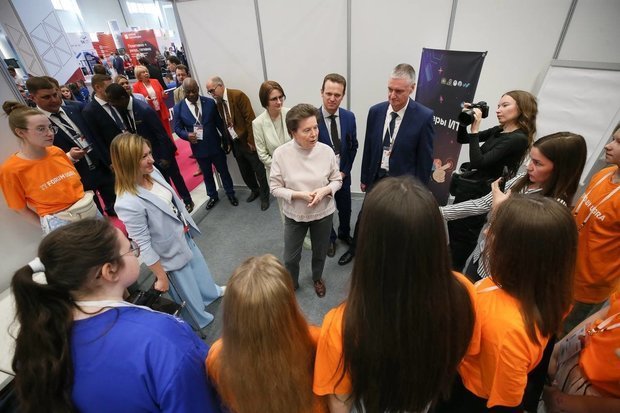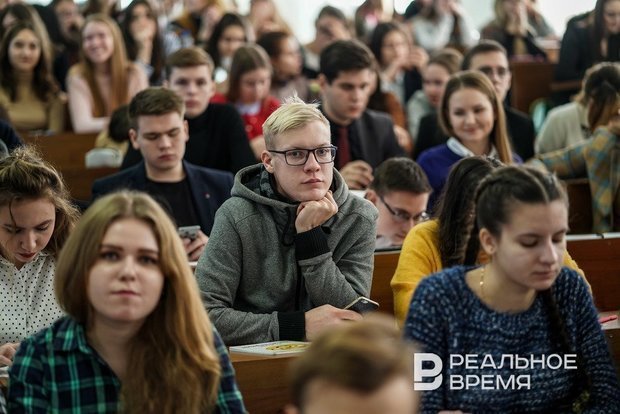Galina Akhmerova: ‘Competition for personnel is going to exceed competition for customers’
Expert — about the work of companies with young people and the prospects of labour market

The shortage of qualified specialists in Russia, which has only intensified against the background of the special military operation, has led to an increase in wages in certain sectors of the economy. As a result, the number of Russians satisfied with their earnings has grown to 50,6% in 2 years, according to a Rosstat study.
There is high competition ahead for personnel as well
Now I am observing a very interesting time. For more than 15 years I have worked in the public sector market and supervised marketing, sales and HR. Three and a half years ago, I created an educational foundation: we are engaged in the popularisation of career guidance for young people (starting from junior grades), and a year ago I plunged into the topic of corporate communications in more detail as an expert and creator of an IT platform.
About 6 years ago, it became clear to me that competition for personnel would soon exceed competition for customers: it was then that a similar problem arose in the IT sector, one of the most highly competitive and young in average age employees.
Modern analytical reports and studies also record this phenomenon.
At the same time, the function of internal communications appeared in my work much earlier, 10 years ago: first in the marketing and PR department, then as part of HR and 5 years ago as a full-fledged independent department.

Since I worked in the IT industry all the time, it seemed to me that things were similar in other areas.
And only 3 years ago, when I plunged into the educational direction, I began to analyse more deeply the values, interests, behaviour, priorities of our audience (young people, especially teenagers). I wanted to create a service that would help teenagers find themselves in the broadest sense, combining their interests with the needs of companies.
Youth as a symbol of the new age
In the process, I came across that most companies not only do not work with young people, but also do not see any sense in it — with the rare exception of high-tech industries and strategically far-sighted top managers, of which there are few.
Literally 2-3 years later, young people (14-35 years old) as if it becomes a symbol of a new time.
1. The issue is raised at the state level (for example, the creation of pioneer 2.0 — Movement of the First), in multiple presidential instructions it sounds:
- create conditions for promoting youth employment from the age of 14,
- encourage employers to hire young people,
- create an environment for self-realisation of young people.
The instructions following the results of the State Council meeting of December 22, 2022 are presented in the order of mention (Pr-173GS, item 2b) -1; Pr-173GS, item 2b)-4; Pr-173GS, item 2a)

2. Companies changed the vector to early engagement and retention.
Young people began to be singled out as a separate category both inside the company and outside. Norilsk Nickel, for example, has launched the “In Good Company” programme for young employees under 35, it is an online platform with training tracks, contests, hobby tasks — the solution is organically woven into real life.
At the same time, there is a demand for new formats of communication between employers and students: now the creation of departments and the organisation of job fairs does not solve the problems of employers. The percentage of students coming to the company from a fully supervised department does not exceed 35%. And those who come, go through the stages of adaptation from scratch, as well as all new employees. Now the focus is shifting to the integration of students into the corporate life of the company and immersion in corporate culture while studying at the university!
Besides, in practice it turns out that the percentage of dismissal of profile students at the stage of adaptation in comparison with other newcomers is not much better. Previously, companies looked at working with students more as an image story, and now they are thinking about changing the ways of communication in order to close business goals. For example, companies have already turned their attention to college students and high school students as a separate category of interest.
New generation will dictate their working conditions
Why young people? The stratum of Russians aged 14-35 is about 35 million people of working age. For understanding, the population of Russia in 2021 is 143,4 million, subtract children and pensioners.

There are not enough young people to close all jobs, so very soon a new generation will dictate their working conditions. Those employers who will learn to listen to what it says will come forward.
Today we are still at the very beginning of the processes that will take place in the labour market in the future.
- One of the key advantages in attracting talent will be flexibility.
- Understanding people's needs will directly affect business results.
- The value of real-time communication.
The most successful companies in the next 25 years will be those that understand their employees and are able to use the knowledge they have gained. It's time to start already now!
Reference
The author's opinion may not coincide with the position of the editorial board of Realnoe Vremya.